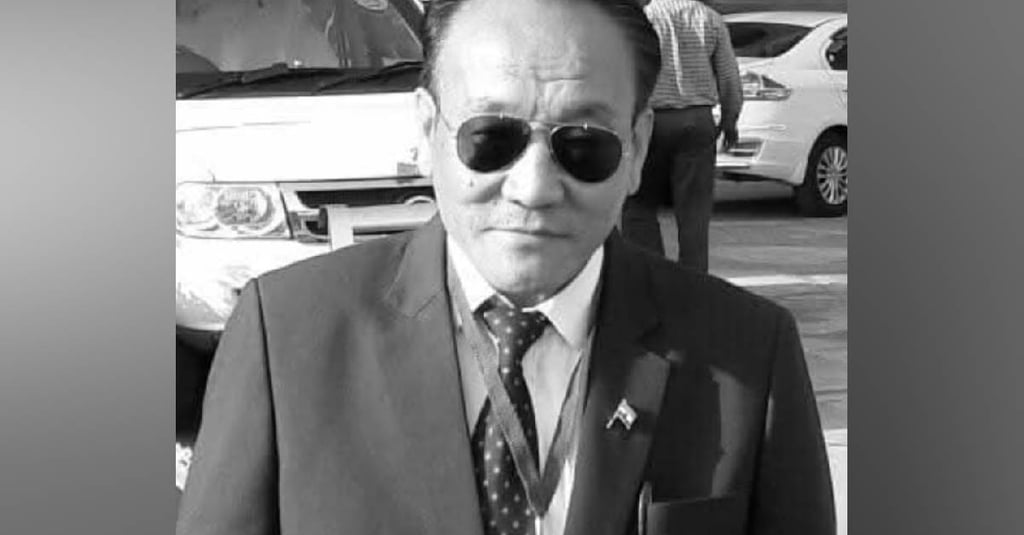Safeguarding Sikkim’s identity is vital for national security, says SIBLAC Convenor
Speaking through a press statement released on Friday, Bhutia reminded that the protection of Sikkim’s identity is not just a local concern—it is directly linked to the national security of India.
LOCAL


In an appeal to the Government of Sikkim, senior social activist and SIBLAC Convenor Tseten Tashi Bhutia has raised serious concerns about the slow but steady erosion of Sikkim’s unique identity and constitutional safeguards. Speaking through a press statement released on Friday, Bhutia reminded that the protection of Sikkim’s identity is not just a local concern—it is directly linked to the national security of India.
The statement highlights that Article 371F of the Indian Constitution was specially included to protect Sikkim’s distinct culture, communities, laws, and political structure after it became the 22nd state of India in 1975. However, Bhutia expressed worry that these very protections are now under serious threat.
According to him, the core elements that define Sikkim’s identity—such as the old land laws, the sanctity of the Sikkim Subject Register (SSR), and seat reservations in the State Legislative Assembly for Bhutia-Lepcha (BL), Sangha, and Sikkimese Nepali communities—are being gradually diluted.
He pointed out that until 1980, the 32-member Sikkim Assembly had an equal division of seats: 16 for Bhutia-Lepcha (including one for the monastic Sangha) and 16 for the Nepali community of Sikkimese origin, which includes Tsong/Limbu and Scheduled Castes. But now, only 12 seats are reserved for the BL community, one for the Sangha, and two for Scheduled Castes. The remaining seats are categorized as general seats, reducing the original balance and protection offered to Sikkim’s native communities.
“This erosion,” Bhutia said, “goes against Clause (k) of Article 371F, which still protects the Representation of Sikkim Subjects Act, 1974.” He added that this law cannot be changed now, as the constitutional window for such modifications closed on April 26, 1977. “Tampering with this framework is not only legally wrong but also morally unacceptable,” he said.
The press statement also emphasized the importance of Sikkim’s geographic location, which lies in a sensitive border area near China, Nepal, and Bhutan. Bhutia warned that losing Sikkim’s cultural and demographic identity could weaken India’s position in this strategic region. “If we do not protect the original communities of Sikkim, we are risking long-term national security,” he said.
He also called for constructive dialogue on other pending concerns that affect communities not covered under the Sikkim Citizenship Order of 1975. However, he stressed that such discussions should not lead to any compromise on the rights of the original Sikkimese people.
“Development cannot come at the cost of identity. Building roads and infrastructure is not enough if our people are being pushed out of their own land and their voices are silenced,” the statement read. “This is not development—it is a slow form of cultural and social genocide.”
Bhutia urged politicians and political parties in Sikkim to stop engaging in petty fights and instead come together to defend Sikkim’s core interests. “We need our leaders to speak boldly and with dignity in Delhi, to protect Article 371F and the rights of the people who call Sikkim their ancestral home,” he said.
The press statement listed five key demands for the state government:
Clarify the official stand on these important issues.
Take steps to fully implement Article 371F in both letter and spirit.
Protect the Sikkim Subject Register (SSR) and prevent misuse of Sikkim Subject Certificates.
Uphold Sikkim’s old land laws to stop land alienation.
Restore proper seat reservations for the Bhutia-Lepcha, Sangha, and Sikkimese Nepali communities, including Tsong/Limbu and Scheduled Castes.
Bhutia ended his statement with a clear message: “Let this serve as a reminder that safeguarding Sikkim's identity is safeguarding India's national security.”
The message has sparked discussions among political observers and civil society members in Gangtok and beyond. With the 50th anniversary of Sikkim’s statehood approaching, many believe it is time for both state and central governments to revisit the promises made to the people of Sikkim in 1975.
